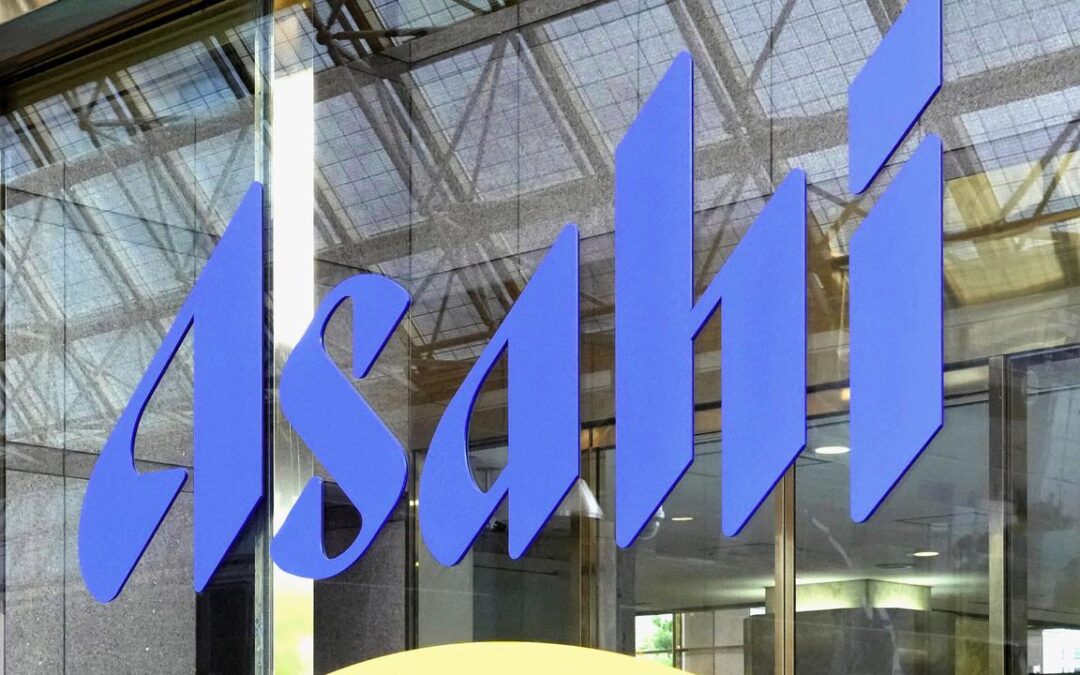
Details of 1.5m customers leaked in Asahi cyberattack
Japan’s Asahi Group aims to normalise logistical operations by February after a cyberattack in late September forced widespread suspension, though not all products will be available to ship by that time.
The beverage maker, known for its flagship Super Dry beer, also said the personal details of 1.52 million customers might have been leaked in the September 29 attack.
Information on 114,000 contacts and 275,000 current and former employees and their families might also have been exposed, none of which had appeared online, Asahi said on Thursday.
The attack caused widespread outage in areas including order processing, shipping and call centres as Asahi became the latest victim among companies worldwide targeted by hackers.

Earlier in 2025, auto maker Jaguar Land Rover was forced to close factories while retailer Marks and Spencer had to suspend online orders.
Asahi said it pushed the release of its July-September earnings scheduled for November 12 to more than 50 days after the end of the quarter, extending postponement from 45 days.
“We can’t avoid forecasting a deterioration in our results but our mid-to-long-term management plan is unchanged,” CEO Atsushi Katsuki said at a press briefing in Tokyo.
The disruption saw restaurants, bars and stores in Japan run low on Asahi drinks.
The beverage maker resumed production at six domestic factories in the week following the attack.
October sales at its three principal domestic-facing beverage and food units were down 10 per cent to 40 per cent compared with the same month last year, Asahi said.
Ransomware group Qilin on October 9 claimed to have orchestrated the attack.
Asahi had not paid any ransom, CEO Katsuki said on Thursday.
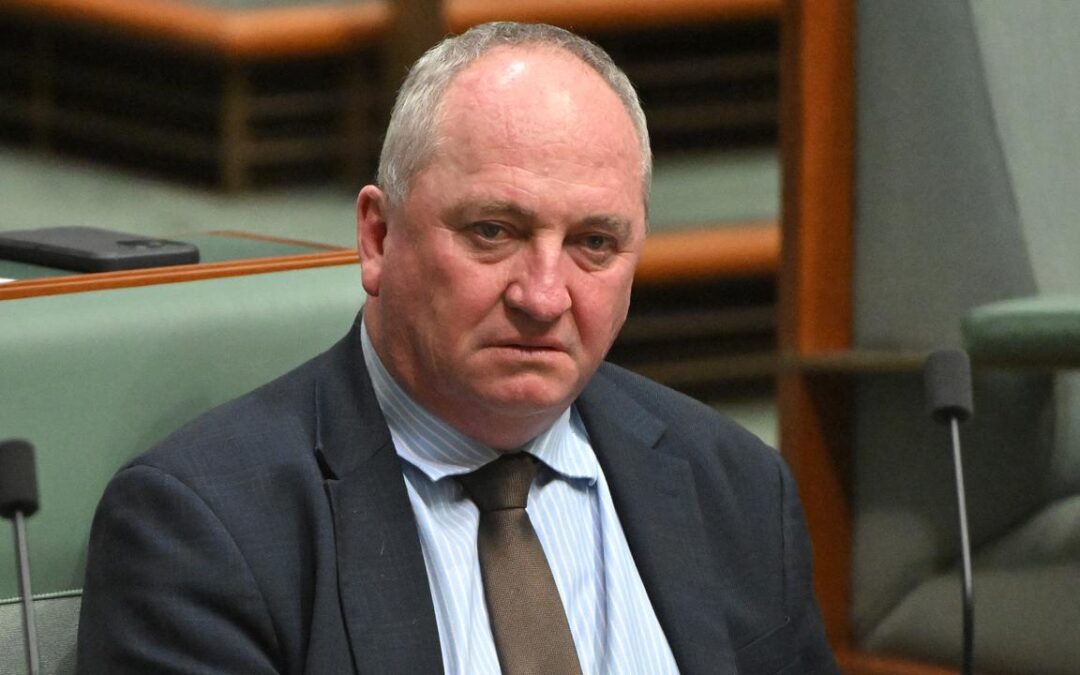
Joyce ditches Nationals, coy on One Nation defection
Barnaby Joyce is jumping ship from the Nationals but hasn’t confirmed whether he will join right-wing minor party One Nation after rampant speculation over his future.
The twice-deputy prime minister and leader of the rural party announced the move in parliament on Thursday after previously saying he wouldn’t recontest his seat of New England, citing an irreparable breakdown in his relationship with leader David Littleproud.
“After 30 years with the National Party, I’m resigning from the party and that really leaves me with a heavy heart,” he told the lower house in a 90-second statement.
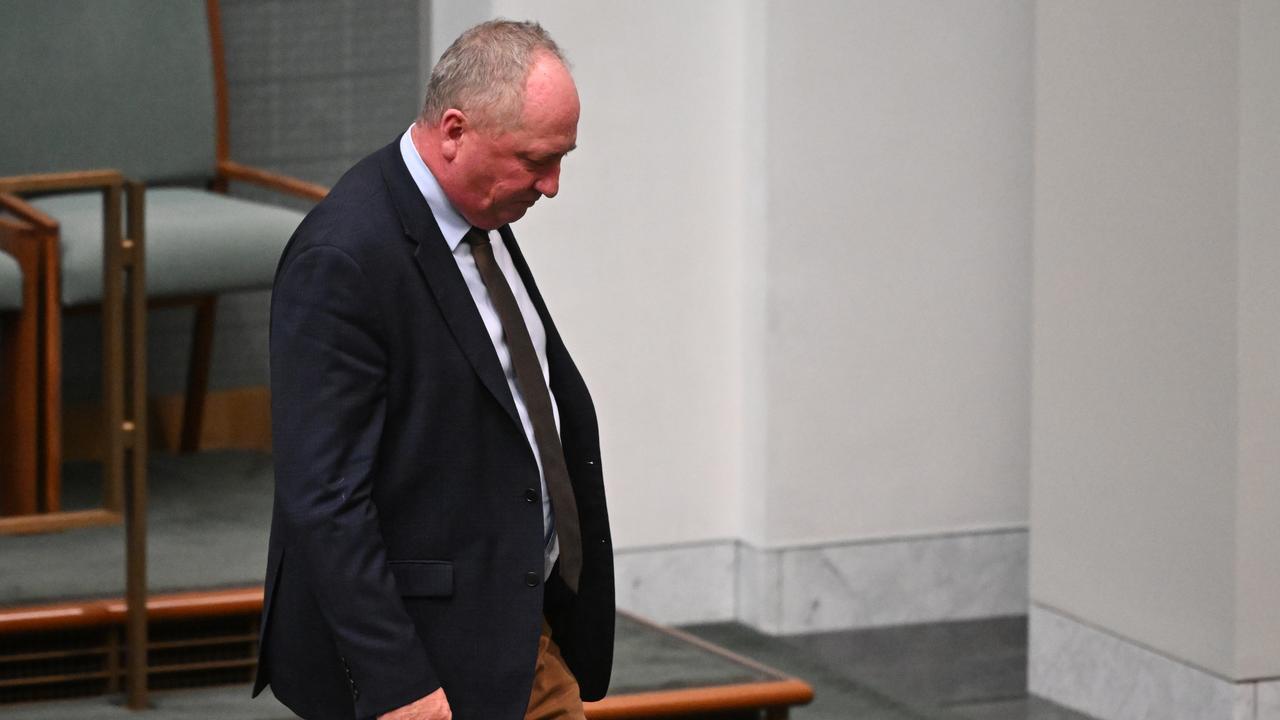
Mr Joyce said he had to find a more effective way to stand up for regional Australians after three decades in the National Party.
But he later told reporters he hadn’t made up his mind on whether to join One Nation.
Mr Joyce hasn’t sat in the Nationals’ party room since announcing in October that he wouldn’t recontest the seat at the 2028 election.
But there is speculation he could run for the Senate on a One Nation ticket and remain in parliament with the minor party soaring in the polls in recent months.
He has said his views align with One Nation’s policy priorities, including rallying against a commitment to a net-zero emissions target that has since been dumped by the coalition.
One Nation leader Pauline Hanson stirred controversy on Monday by wearing a burqa in the Senate as she tried to push a private member’s bill to ban the religious garment.
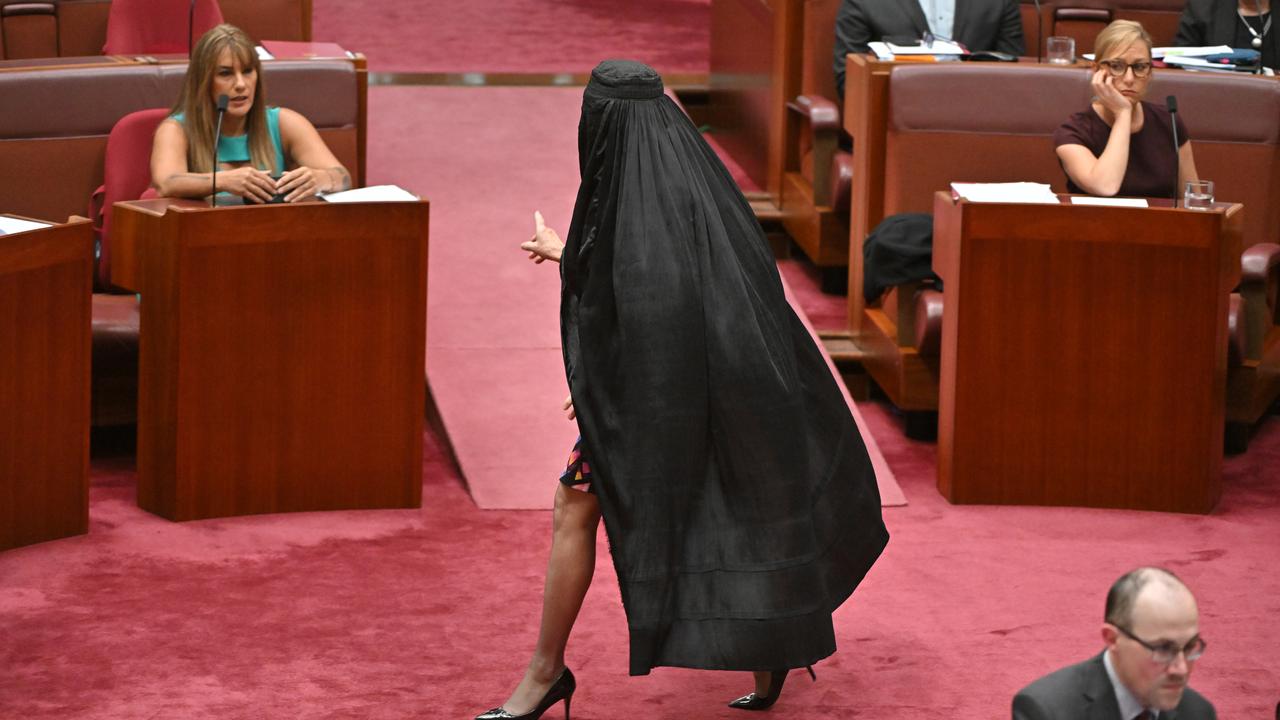
Her stunt and comments about the burqa were widely condemned, and she was subsequently censured and barred from the chamber for seven sitting days.
Hours later, Senator Hanson hosted Mr Joyce for dinner in her office, with photos then circulated of the firebrand senator cooking steaks on a sandwich press.
Mr Joyce’s Nationals’ colleagues had worked for weeks to convince their former leader to stay in the party.
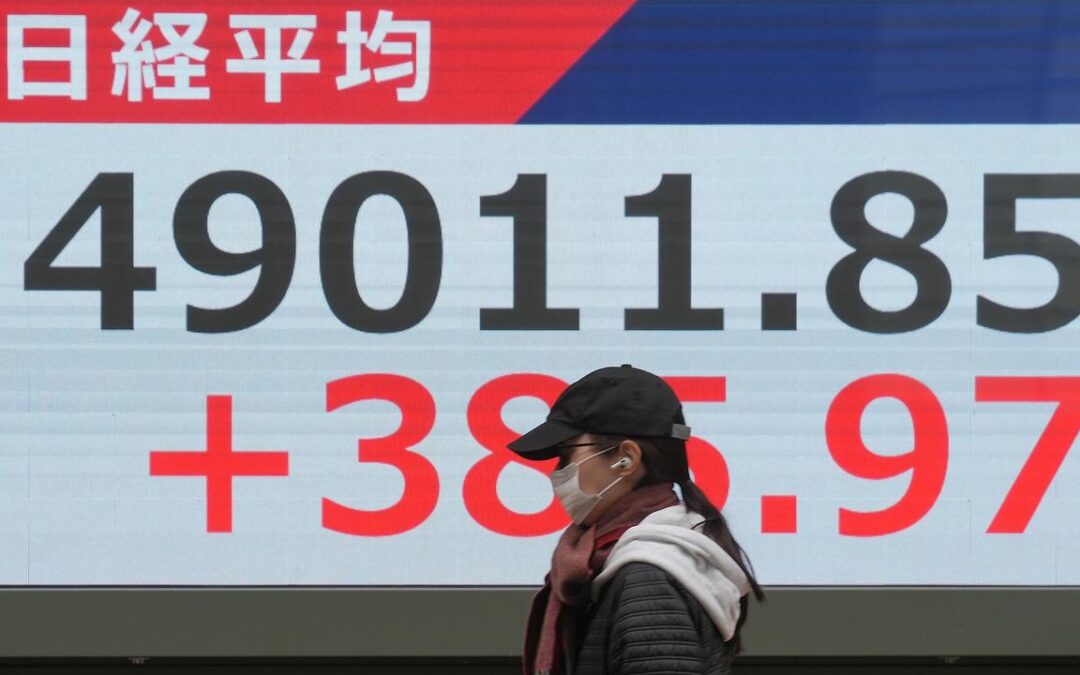
Stocks up on US rate cut hope, yen in intervention zone
Asian stocks rose on Thursday and the dollar was soft on growing expectations of an interest rate cut from the Federal Reserve next month, while the yen stayed in the spotlight, with traders weighing the prospect of a rate hike before the end of the year.
A holiday-curtailed week has led to limited moves across markets with stocks keeping a largely upbeat tone and currencies much more sedate. The US markets are closed for the Thanksgiving holiday on Thursday and are due to trade for a short session on Friday.
MSCI’s broadest index of Asia-Pacific shares outside Japan was 0.27 per cent higher, tracking gains from Wall Street and on course to snap a three-week losing streak. Japan’s Nikkei and South Korea’s Kospi surged over 1.0 per cent.
Investor focus will also be on the Chinese property sector as property developer China Vanke seeks bondholder approval to delay the repayment of a two billion yuan ($A433.6 million) onshore bond.
A public bond extension would be the first for the state-backed property developer, a household name with many projects in China’s biggest cities and could trigger a new wave of anxiety in both financial and property markets.
While the US data flow has resumed since the record 43-day government shutdown ended mid-November, most of the economic reports issued so far have been significantly dated and have offered very little insight into the health of the economy.
That has turned investors’ attention squarely on comments from Fed officials to gauge the US monetary policy path, with comments this week from San Francisco Federal Reserve Bank President Mary Daly and Fed Governor Christopher Waller boosting expectations of a rate cut.
Traders are now pricing in an 85 per cent chance of a rate cut next month compared with just 30 per cent a week earlier, CME FedWatch showed.
George Boubouras, managing director of K2 Asset Management, said there is enough on the labour market weakness to offset the current inflation pulse, with a December rate cut on balance looking reasonable.
“While core inflation is above target, the US 10-year breakeven inflation rate around 2.25 per cent suggests that markets are broadly comfortable inflation expectations remain reasonable. In the short-term USD weakness to persist but to be reversed in the March quarter 2026.”
The euro rose to the highest in more than a week at 1.16045 in early trading. The dollar index, which measures the US currency against six rivals, was little changed at 99.523, after dropping 0.28 per cent on the previous day.
Data on Wednesday showed the number of Americans filing new applications for unemployment benefits fell to a seven-month low last week, suggesting layoffs remained low.
Sterling rose to $US1.3247 ($A2.0324), a one-month high after UK finance minister Rachel Reeves’ budget helped alleviate some concern about Britain’s long-term finances.
The Japanese yen strengthened a bit to 156.16 per dollar as investors kept an eye on possible intervention from Tokyo after weeks of verbal jawboning from authorities to stem the currency’s relentless slide.
Prime Minister Sanae Takaichi ruled out on Wednesday the possibility that Japan could face a British-style “Truss moment”, or loss of market confidence stemming from her expansionary fiscal policy.
The Japanese currency has weakened by nearly 10 yen since the start of October as Takaichi took over the helm amid worries the administration’s spending plans will need heavy borrowing, and on doubts over the timing of the next rate hike from the Bank of Japan.
Sources told Reuters that the BOJ is preparing markets for a possible rate hike as soon as next month as it may take a more consistent rate hike path to alter the trajectory of the currency.
Bitcoin was back above $US90,000 ($A138,081) on Thursday, on track to snap a four-week losing streak with a nearly 3.0 per cent gain. Gold was flat at $US4,164.81 ($A6,389.80) per ounce, after rising 0.8 per cent in the previous session.

Retirement home operator finally cashflow positive
A Christchurch-based retirement home operator that recently listed on the Australian stock exchange has delivered its first positive free cash flow in a decade, but still posted a loss.
Ryman Healthcare announced on Thursday it had positive free cash flow of $NZ56.2 million ($A49.1 million) for the six months to September 30, up from negative $NZ52.5 million ($45.9m) in the previous half.
The company posted a net loss after tax of $NZ45.2 million ($A39.5m), down from a $NZ82 million ($A71.7m) profit a year ago, when Ryman’s bottom line was boosted by fair value movements of its property portfolio.
Revenue for the second half grew 13 per cent to $NZ413.8 million ($361.8m), with costs down two per cent.
The company owns 40 retirement villages in New Zealand and nine in Melbourne.
It listed on the exchange on October 1 and retains its primary listing on the NZ exchange.
Chief executive Naomi James said Ryman had turned a corner and reset its balance sheet following a $NZ1 billion equity raising in February and a refinancing of its $NZ2 billion in bank facilities in November.
Ryman had $NZ1.65 billion ($A1.44b) in net debt as of September 30, down $NZ14.1 million ($A12.3m) from six months ago.
“The business has stabilised, momentum is returning, and we are delivering results with meaningful progress achieved against FY26 priorities,” Ms James said.
Ryman sold 674 units during the first half, up from 452 in the previous half, but down from the more than 800 it had sold in the two previous halves before that.
Ryman said local property markets were recovering at different speeds, with Victoria doing better, regional New Zealand mixed and Auckland yet to show meaningful improvement.
Ryman has scaled back its development activity, trimming its sites under development from seven to four.
Ryman’s ASX-listed shares were up 2.4 per cent to $2.57 near noon, having gained 12.7 per cent since their listing debut.
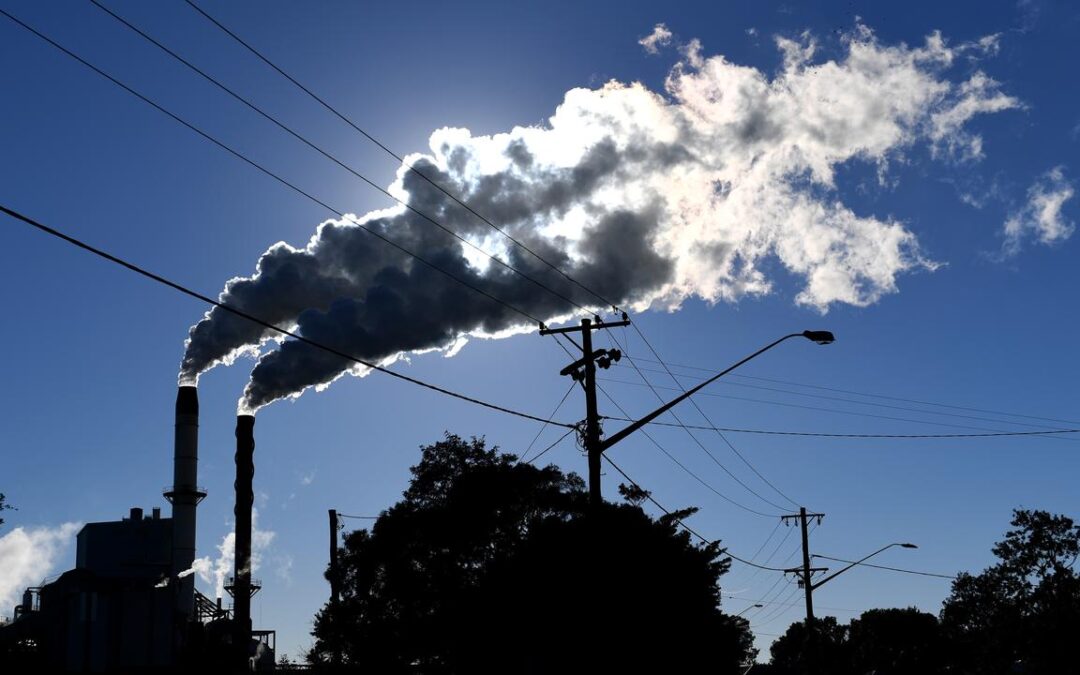
Biggest annual drop in climate emissions since COVID
More clean energy powering grids and progress on industry decarbonisation has contributed to Australia’s biggest annual fall in greenhouse gas emissions outside the COVID-19 pandemic.
Federal Energy Minister Chris Bowen declared Australia “well on the way” to meeting its 2030 climate goals following the latest government department figures.
Australia is chasing a 43 per cent emissions cut on 2005 levels by 2030 and a 62-70 per cent reduction by 2035, interim targets on the way to net zero by 2050.
Climate pollution fell by 2.2 per cent in the year to June 2025, the numbers from the Department of Climate Change, Energy, the Environment and Water show.
Total emissions are now 28.5 per cent lower compared to June 2005.
“We are on track to bring down energy bills and meet our climate targets if we stay the course and continue to lift our efforts,” Mr Bowen said.
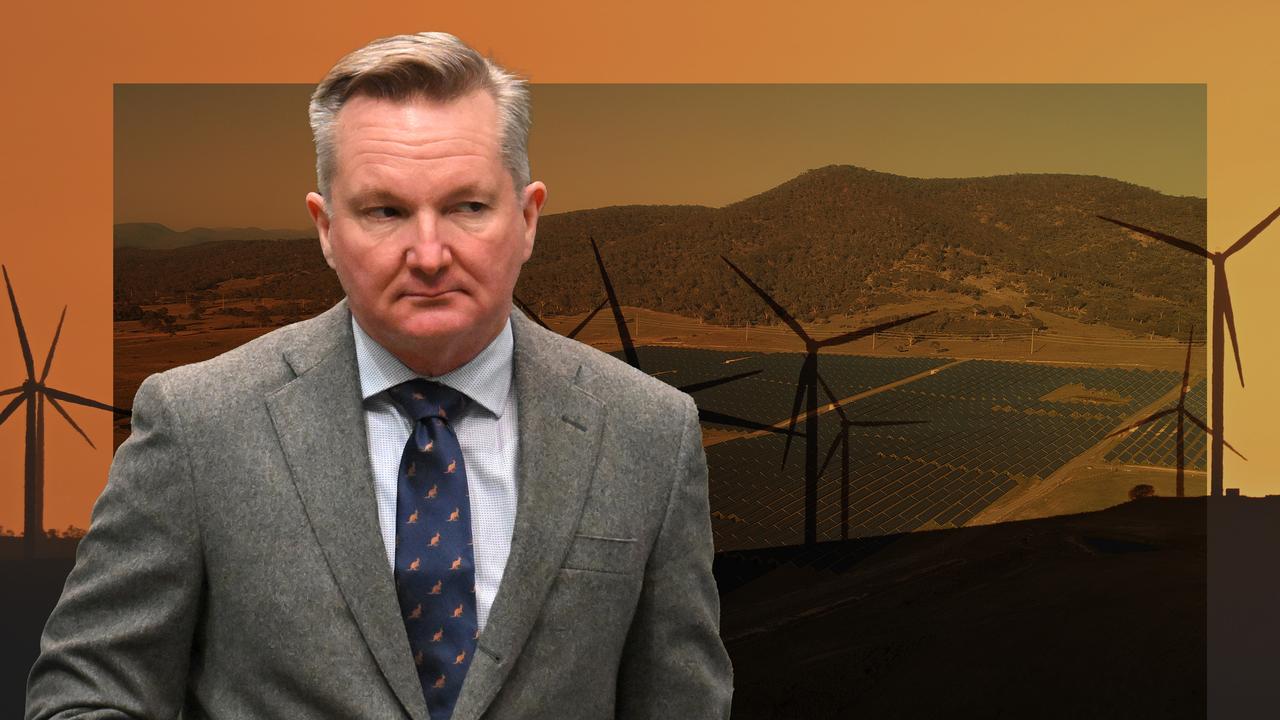
The Labor government is touting its progress on climate as the federal opposition backs away from formal targets to cut emissions to neutral by 2050, arguing the government’s plans are too costly and largely ineffective at reducing emissions.
Mr Bowen, who has just returned from United Nations climate talks in Brazil without formal hosting rights to the next summit, said his government’s practical policies, including the safeguard mechanism targeting big polluters and popular subsidies for home batteries, were working to drive down emissions.
Thursday’s numbers show electricity emissions have fallen 3.3 per cent in the year to June, fuelled by more renewables. In September, wind and solar overtook coal on a monthly basis for the first time.
Emissions from industry were down 2.2 per cent, reflecting technology changes in chemicals and metals sectors, as well as in fugitive emissions, which dropped 4.3 per cent.
Transport emission ticked 0.3 per cent higher, reflecting more diesel use on the roads and higher flight activity.
Preliminary figures for last quarter suggest the downward trend would continue into the next financial year, with a 2.8 per cent decline pencilled in for the year to September.
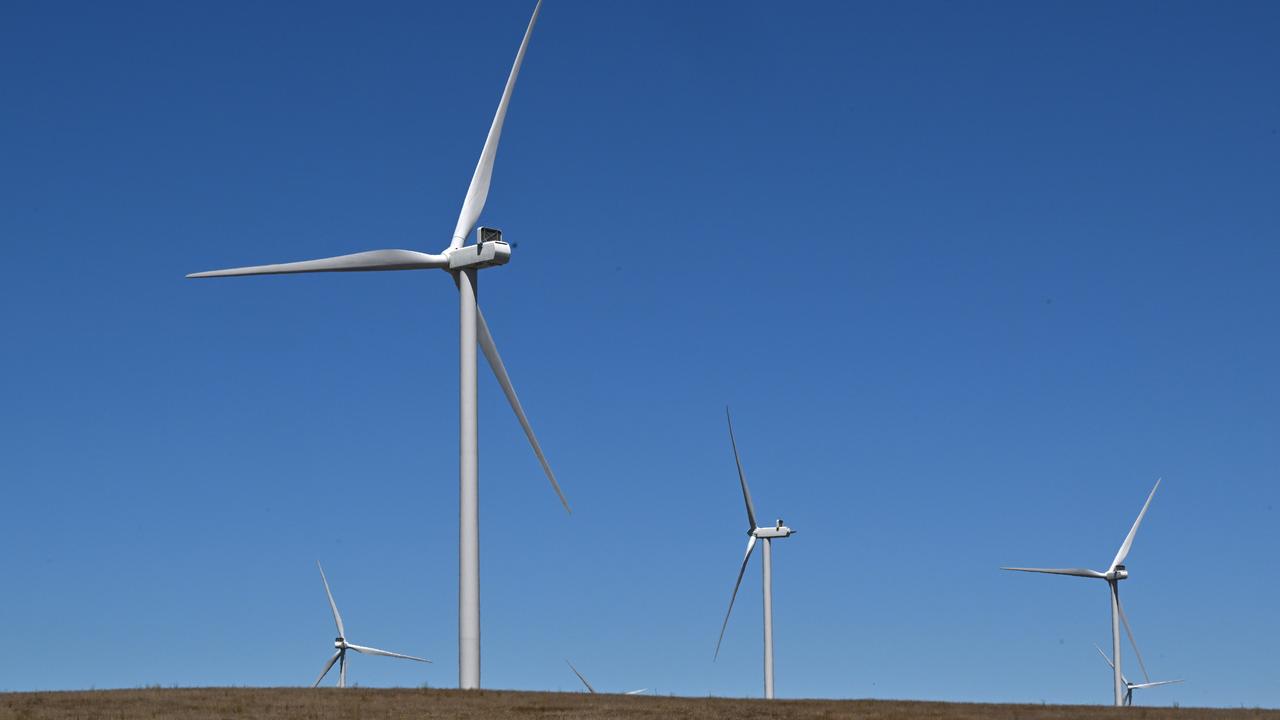
Conservation and climate groups have been warning Australia has missed an opportunity to cut pollution further in a rework of the federal environment laws.
Labor finally secured a deal with the Greens to pass the troubled set of nature protections on Thursday.
While native forestry loopholes will be closed sooner and fossil fuel projects will not be able to be fast-tracked under the agreement with the minor party, groups like the Climate Council warn the final package falls short on putting checks on climate pollution for new development approvals.
“In the assessment pipeline sit 42 coal and gas projects that could release 8.7 million more tonnes of pollution yearly in Australia, undermining our climate targets, and progress,” Climate Councillor Professor Tim Flannery said.

Employers efforts recognised as gender pay gap narrows
Australian employers are working to narrow the gender pay gap with improvements in the number of women in leadership positions and creating flexible workplaces.
Analysis by the Workplace Gender Equality Agency has found a 0.7 percentage point drop in the gender pay gap to 21.1 per cent, down from 21.8 per cent in 2024.
This means that for every $1 men earn, women on average earn 78.9 cents, adding up to a difference of $28,356 in a year.
However, in CEO salaries the gender pay gap at the top increased 1.2 percentage points to 26.2 per cent in the past 12 months.

Women chief executives earn $83,493 less on average than men in base salary, with the difference ballooning to $185,335 when superannuation, bonuses, overtime and additional payments are included.
The gender pay gap measures how men and women’s work is valued and shows their differences in earnings across organisations, industries and the workforce.
The agency’s gender equality scorecard for 2024/25 showed improvements in the number of women in leadership roles and on boards and in the upper quartile of earners.
The progress demonstrated employers were working to meet staff expectations of fairer workplaces for everyone, chief executive Mary Wooldridge said.
“Employers are shifting the dial towards fairness, which is helping to close the gender pay gap,” she said.
“Reductions to the pay gap and modest improvements towards gender-balance in leadership roles are underpinned by more employers having policies and taking action that can break down gender norms.”
When healthcare technology company Medtronic noticed its gender equity targets lagging, it decided to tackle the problem head on.
“We created a survey that went out to our female employee base which had a more than 50 per cent response rate, so we were able to collect some robust data,” senior regional sales manager Amanda Peirce told AAP.
“Nearly half our employees said they faced barriers to career progression.”
The company established a development program for female employees called EmpowerME, which was co-led by Ms Peirce.
It was designed to build confidence and visibility of women in all levels of the company with opportunities in skill progression, finance training and one-to-one coaching.

EmpowerME participant Amanda Cruz said the mentoring and coaching aspects were life-changing professionally and personally.
“I applied those learnings when I later led the cohort, had networking opportunities where I could meet with employees in the field, out in hospitals, contributed to award-winning initiatives and progressed in my career,” she said.
Now in its third year, Ms Peirce said the program’s results exceeded everyone’s expectations.
“We have seen female leadership go from 35 per cent to 48.5 per cent within the organisation,” she said.
“We’ve captured lots of data that shows increases in confidence, skills, promotion opportunities and career engagement in general.”
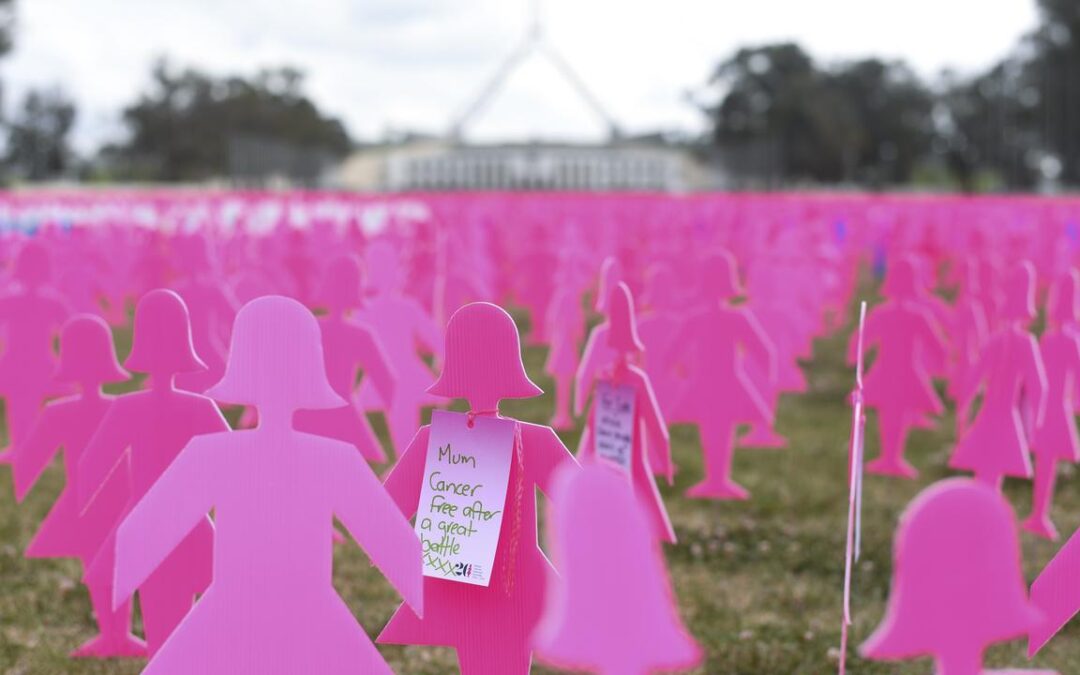
‘Invisible’ cancer patients finally brought into focus
The number of Australians living with incurable breast cancer is almost double what has been previously estimated, with thousands of mostly female patients invisible to health authorities.
Metastatic breast cancer develops when the cancer spreads from the breast and nearby lymph nodes to other parts of the body.
While incurable, modern treatments are allowing people to live longer but poor data collection has meant this population group has largely gone uncounted.
There were almost 21,000 Australians living with metastatic breast cancer in 2024, according to world-first estimates published by the Australian Institute of Health and Welfare.
Of these, an estimated 20,800 were women and 150 men.
This number is double the estimates which have been used for years to inform healthcare policy and services.
“These estimates are based on the best currently available national and state data and provide increased visibility for a growing group of people who have specific health and community service needs,” institute spokesperson Justin Harvey said.
“Improving data on metastatic breast cancer will help support better clinical care, service planning, research and policy development.”
While people with metastatic breast cancer are living longer, Breast Cancer Network Australia is advocating for different services to those with early breast cancer.
Historically, breast cancer registries around the country have collected incident and mortality data which left a huge gap in knowing the numbers of people living with the metastatic form of the disease, the network’s director Vicki Durston told AAP.
“Up until today these people have been invisible in data and therefore are invisible in our health planning and cancer policy,” she said.
“There is also a gender lens to this because this is the most common cancer for women and they deserve better.”
Ms Durston said the updated data would inform research and policy makers to ensure people’s needs are met.
“Our system is set up for acute care and not long-term cancer management,” she said.
“We’ve got such great advancements in treatments but people also need to live well and we need to keep them living well.”
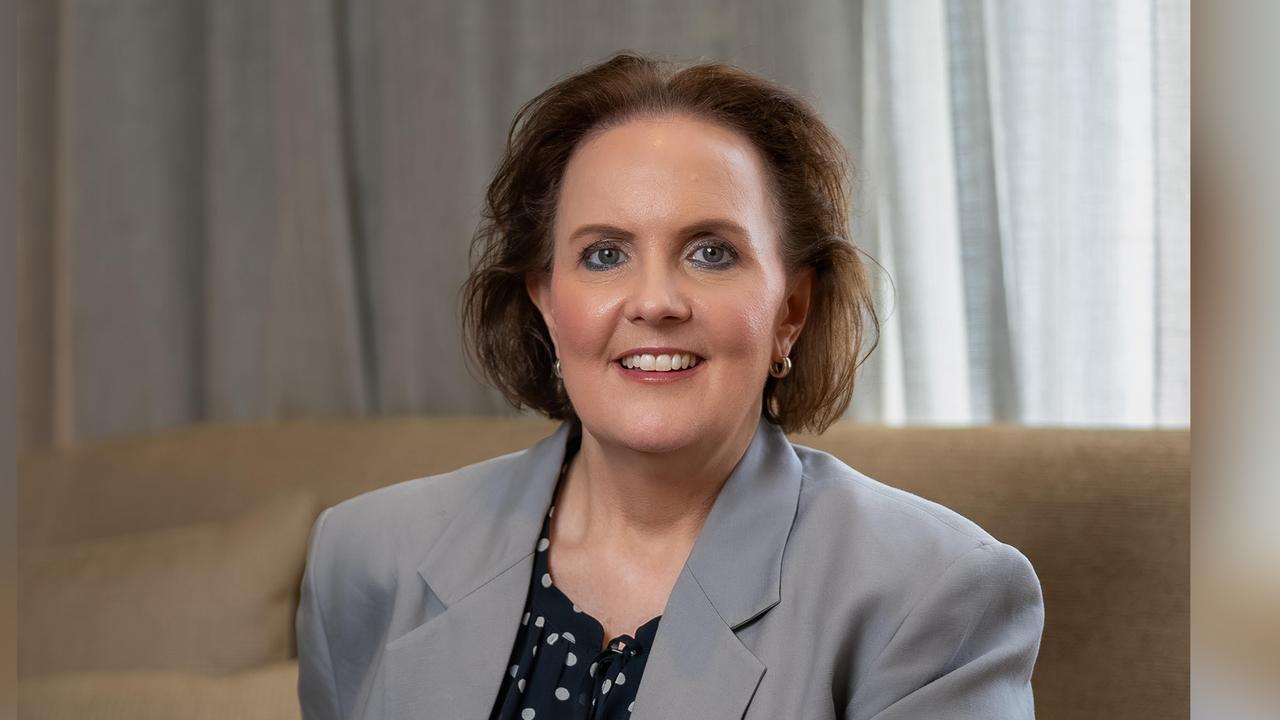
Lisa Rankin was 45 years old when she was diagnosed with breast cancer and a year later she discovered it had metastasized.
“I was worried about my breasts and it was difficult to get the medical profession to take it seriously because I was told I was too young and I wasn’t the target group,” she said.
“I honestly thought that I had beaten cancer and it was a real blow to get that second diagnosis.”
While treatment has prolonged Ms Rankin’s life, it is often difficult to explain to people in her life what living with the disease is like.
“People either think you are about to die or you’ve beaten it and you really give up trying to explain,” she said.
“Having this credible national data is more than numbers, it’s recognition because it feels like we are finally being recognised as a community who aren’t being served by the health system or services.
“There are so many incredible women living with this disease who are doing the most amazing things … we are worth investing in.”
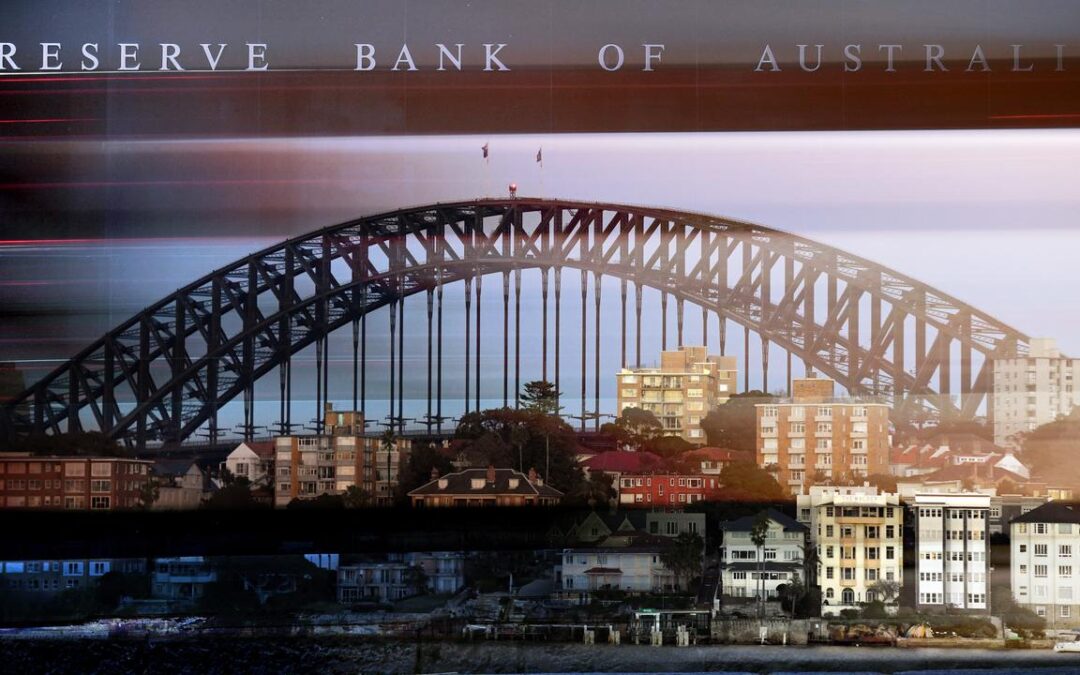
Red-hot inflation shows RBA may have cut rates too far
The Reserve Bank is more likely to hike rates next than cut them, traders believe, after a “concerning” inflation reading.
Analysts were blindsided when the Australian Bureau of Statistics revealed on Wednesday consumer prices rose by a higher-than-expected 3.8 per cent in the 12 months to October.
The result shook markets, which up until a few months ago had been expecting the central bank to lower the cash rate once or twice from its current level of 3.6 per cent.

A recent resurgence in price pressures had tempered expectations, but on balance, traders still thought another move down was more likely than a move up.
The rates market had been pricing in about 12 basis points of cuts in 2026 ahead of the “red-hot” inflation data, IG market analyst Tony Sycamore said.
“It goes out pricing in roughly 12bp of rate hikes for 2026,” he said.
That boosted the Aussie dollar against the greenback but spooked equities investors, with the ASX200 retreating about 40 points after the news.
The fact that growth is in an upswing and inflation is rising suggests the cash rate is not slowing the economy down, HSBC chief economist Paul Bloxham said.

“For the RBA, today’s figures should be concerning,” he wrote in a research note on Wednesday.
“A debate can be had about whether the RBA has already cut its cash rate too far.
“Our central case sees the RBA on hold through 2026, with the rate hikes beginning in early 2027. Today’s print adds to the risk that rate rises could be needed earlier than that.”
Analysts at investment banks Barrenjoey and UBS tipped the Reserve Bank to raise rates in 2026 following the print, but economists at ANZ and Westpac were still holding onto their predictions for at least one more cut in 2026.
JP Morgan analyst Tom Kennedy said while the upside surprise meant there was clearly a risk that inflation could overshoot the Reserve Bank’s forecasts, he did not think it was “sufficient for rate hikes to creep into the RBA’s internal discussion”.
“We continue to see the RBA on hold through 2026, with hikes likely from early 2027,” he said.

D-day for deal on contentious environmental law reforms
Labor is expected to strike a deal on its historic overhaul of environmental laws as negotiations reach a pointy end.
Greens leader Larissa Waters and environment spokeswoman Sarah Hanson-Young met with Prime Minister Anthony Albanese after the Greens were provided with amendments to the laws, drafted to secure their support.
Labor has remained optimistic an agreement will be struck with either the Greens or the coalition to pass the laws by the end of the year.
An agreement must be struck by Thursday if the 1500-page package of bills is to be tabled in the Senate.
The bill aims to ensure better protections for the environment while tackling a backlog of critical infrastructure, energy and housing projects by streamlining approvals processes.
Amendments for the Greens were aimed at removing fossil fuel projects from fast-track approvals pathways and ensuring they could not be subject to a new “national interest” exemption from environment laws.
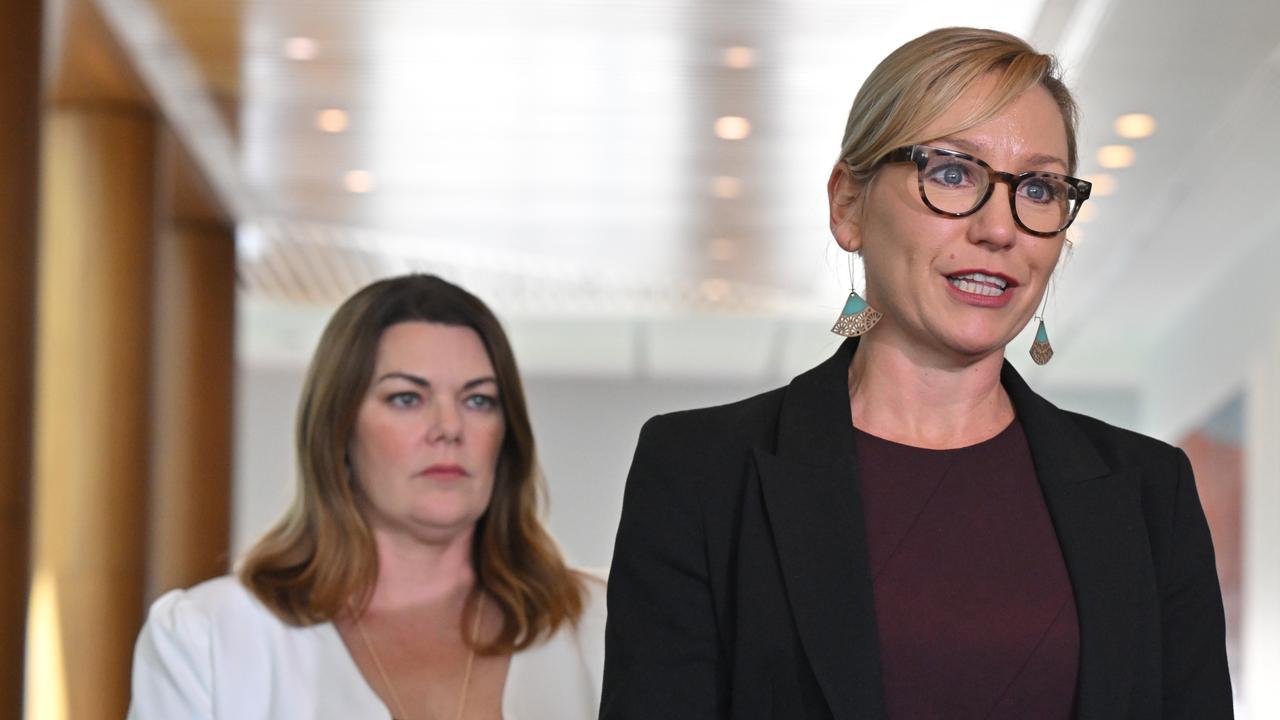
Another change included keeping the “water trigger” in the hands of the federal government, which requires any impacts on water resources to be considered when approving a project.
For the coalition, Labor offered five changes, including imposing a 14-day stop work order imposed by a federal Environment Protection Authority.
The coalition has also raised concerns about the powers of a proposed national environment protection agency, and in response, Labor has agreed to somewhat limit the powers of the department’s boss.
Negotiations are firming in favour of the Greens, with Opposition Leader Sussan Ley yet to meet the prime minister face-to-face on the reforms.
Parliament is scheduled to rise on Thursday evening, but politicians have been told to stay until Friday in case negotiations drag on until the last minute.

Vatican reports first surplus after years of deficits
The Vatican closed 2024 with a budget surplus, it says, signalling a turnaround after years of deficits that had frustrated church leaders, including the late Pope Francis.
In its first budget report since 2022, the Vatican said it had registered a “significant recovery” in its accounts last year, achieving a surplus of 1.6 million euro ($A2.8 million), thanks mainly to higher donations and strong investment gains.
It said it had managed to cut the structural deficit – the gap between ordinary revenues and ordinary expenses – by 50 per cent but acknowledged that this still amounted to 44 million euros, underscoring the long-term financial challenges facing Pope Leo.
“The report highlights a clear improvement and, while prudently recognising that full financial sustainability is a long-term goal, a clearly positive direction can be observed,” a press statement said.
Francis, who died in April, had long struggled to get the Vatican’s budget under control.
He was battling firm resistance from his own cardinals in his last months as he sought to plug the gap in the Vatican’s finances, and slashed cardinals’ salaries three times from 2021 to 2024.
Although the Vatican had not published its accounts in three years, the last set of accounts, approved in mid-2024, included an 83-million-euro shortfall, two sources told Reuters at the time.
Reuters was not able to verify the previous deficit figure independently.
The Vatican, a microstate within Rome, has limited fiscal options.
It does not issue debt, sell bonds or levy taxes.
The Vatican has three main income streams: it takes donations, it has an investment portfolio and it makes money from admissions to the Vatican Museums.
It also owns the Bambino Gesu Pediatric Hospital in Rome, which is a source of revenue.
The Holy See said revenues rose by 79 million euros last year, driven by external donations and income from its hospital in Rome, while expenses increased by 40 million euros.
Financial management delivered 46 million euros in “positive results,” boosted by capital gains from the sale of historical investments following the launch of a new investment committee.
“This performance … (played) a key role in covering the operating deficit,” the statement said.
It said “2024 could be a turning point if, after years of stable or growing operating deficit, the Holy See (continues) the reduction of its operating deficit in the coming years”.
“It is important to underline that this improvement is mainly due to an increase in donations,” it said.
“It will be necessary to confirm this progress in the coming years.”
The new report does not include data about the growing liabilities within the Vatican’s pension fund, which were estimated to total 631 million euros by the Vatican’s finance chief in a 2022 media interview.
The liabilities are believed by insiders to have ballooned since.